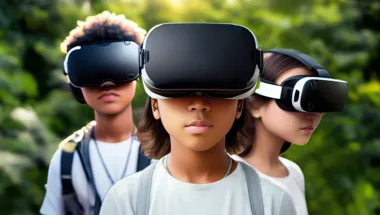
Dr Clementine Edwards
Research Clinical Psychologist
- Wellcome ECA Fellow
Biography
Dr Clementine Edwards completed her MSc in Psychiatric Research and PhD in Academic Psychology (Title: Anhedonia in Schizophrenia: The Roles of Anticipatory and Consummatory Pleasure) at the Institute of Psychiatry, Psychology & Neuroscience. She then went on to complete her Doctorate in Clinical Psychology at King’s College London, continuing her research on negative symptoms in psychosis by exploring the role of autobiographical memory deficits in these difficulties. After 7 years at King’s College London, Clem moved to a Specialist Clinical Psychologist role in Oxleas NHS Trust across inpatient, crisis and community teams with a focus on supporting people with experiences of psychosis.
Clem returned to King’s College London in December 2019 as a research clinical psychologist and trial coordinator for the AVATAR2 therapy trial. This is a novel talking therapy for people who hear distressing voices which uses a computer-simulated avatar to facilitate direct interactions with a voice alongside support from a therapist. The aim is to promote the individual’s power and sense of control in their relationship with their voice and subsequently reduce the distress experienced in relation to it.
Clem was awarded a Wellcome Early Career Award Fellowship for a research programme entitled “Illuminating a joyless life: A transdiagnostic approach to anhedonia” and commenced this work in November 2023. This project examines the mechanisms underlying a reduced experience of pleasure (anhedonia) and how these may differ or overlap across psychosis and depression. This will include qualitative interviews of individuals and machine learning analysis to identify patterns for impactful interventions. The study will also utilise technology including smartphone applications and virtual reality to identify the mechanisms of anhedonia, providing a crucial understanding of an under-researched but critical area of recovery.
Research interests
- The psychological mechanisms underlying negative symptoms in psychosis.
- Digital tools in mental health – assessment and intervention.
- Transdiagnostic approaches to psychological formulation and intervention.
Teaching
Negative Symptoms in Psychosis – DclinPsy Programme
Research
AVATAR2
AVATAR therapy offers a new approach to working with distressing voices (auditory hallucinations), using digital technology to allow ‘face-to-face’ dialogue between the voice-hearer and a computerised representation of their voice (the avatar). We are now taking this forward in the AVATAR2 trial.

IoPPN Virtual Reality Lab
The IoPPN Virtual Reality Research Lab (VR Lab) is a world-leading multidisciplinary group dedicated to VR based research, assessment and treatments to improve mental health, enhance well-being and promote resilience.
News
Experts with lived experience address mental health stigma
The community engagement event, “Voices of Experience: Breaking Mental Health Stigma”, was hosted at Peckham Levels in South East London in May 2025 as part...

Multi-site trial uses digital avatars to effectively reduce distressing voices in psychosis
A novel therapy using computer-generated avatars has found to be an effective way of helping people with psychosis reduce the distress and frequency with...
Spotlight
Talking back: the power of digital avatars in psychosis therapy
AVATAR therapy has shown significant promise in reducing the frequency and impact of distressing voices for those with a diagnosis of schizophrenia. Working...
Research
AVATAR2
AVATAR therapy offers a new approach to working with distressing voices (auditory hallucinations), using digital technology to allow ‘face-to-face’ dialogue between the voice-hearer and a computerised representation of their voice (the avatar). We are now taking this forward in the AVATAR2 trial.

IoPPN Virtual Reality Lab
The IoPPN Virtual Reality Research Lab (VR Lab) is a world-leading multidisciplinary group dedicated to VR based research, assessment and treatments to improve mental health, enhance well-being and promote resilience.
News
Experts with lived experience address mental health stigma
The community engagement event, “Voices of Experience: Breaking Mental Health Stigma”, was hosted at Peckham Levels in South East London in May 2025 as part...

Multi-site trial uses digital avatars to effectively reduce distressing voices in psychosis
A novel therapy using computer-generated avatars has found to be an effective way of helping people with psychosis reduce the distress and frequency with...
Spotlight
Talking back: the power of digital avatars in psychosis therapy
AVATAR therapy has shown significant promise in reducing the frequency and impact of distressing voices for those with a diagnosis of schizophrenia. Working...
